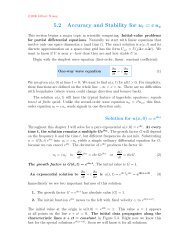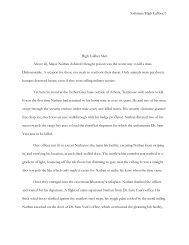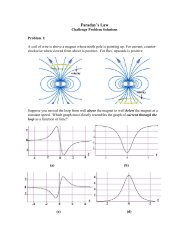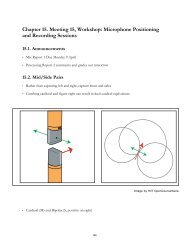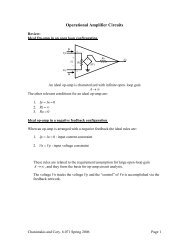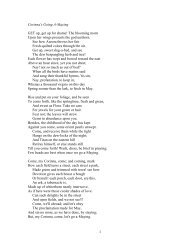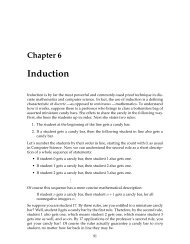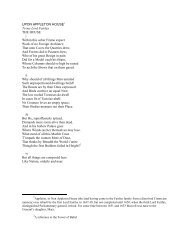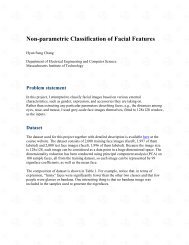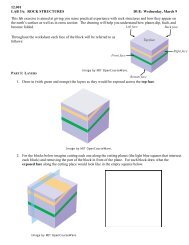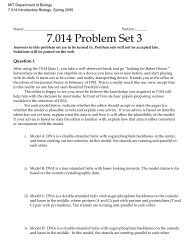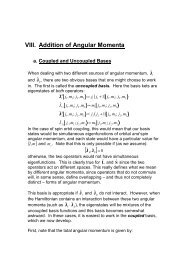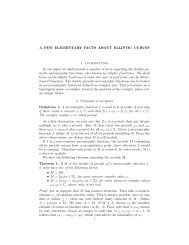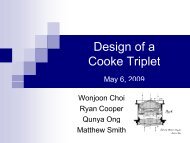MAS.632 Conversational Computer Systems - MIT OpenCourseWare
MAS.632 Conversational Computer Systems - MIT OpenCourseWare
MAS.632 Conversational Computer Systems - MIT OpenCourseWare
Create successful ePaper yourself
Turn your PDF publications into a flip-book with our unique Google optimized e-Paper software.
Using Speeh Recogniion<br />
What do Gould's studies indicate as to the suitability of speech as a keyboard<br />
replacement? It seems easy to learn to input text by voice, and the resulting documents<br />
are of equal quality to those written or typed. Although isolated word<br />
recognition is significantly slower than connected recognition, it does appear to<br />
have utility and may be acceptable in an office environment. But there is more to<br />
writing a passage than entering words. Although speaking may be five times<br />
faster than handwriting and two to three times faster than an experienced typist,<br />
composing a letter takes a significant portion of the time spent creating a document,<br />
thus diminishing some of the speed improvement afforded by voice input.<br />
After initial authoring, documents may require editing, which Gould noted is easier<br />
with handwriting. Some editing functions such as moving a cursor to select a<br />
region of text may be awkward to perform by voice, and it is a challenge for the<br />
recognizer to detect when the user wants to switch between text input and editing.<br />
2 Finally, it must be noted that although Gould's studies compared voice to<br />
handwriting, typing is becoming an increasingly common skill and is much faster<br />
than handwriting (although still much slower than fluent speech).<br />
Despite these objections, the listening typewriter would still undoubtedly be<br />
useful for some users and in some work environments. Research in this direction<br />
hastens the arrival of large vocabulary general purpose recognizers as well.<br />
However, specific assumptions about the structure of written language used to<br />
constrain the recognition task may render the recognizer less useful for other<br />
potential applications. For example, the language, or sequences of words, that a<br />
user would speak to a computer operating system would possess its own unique<br />
syntax very different from the business correspondence used to seed the trigram<br />
probability tables. In addition, operations such as selecting a file name<br />
or entering the name of a new file to be created much less constrain the choice<br />
of the next word than natural languages and therefore are harder to recognize.<br />
The terseness of text-based computer interfaces is efficient for the skilled user,<br />
but by removing redundancy they comprise a more difficult language for recognition.<br />
This section has considered the production of text documents by voice in contrast<br />
to keyboard or handwritten input. Voice as a document type was considered<br />
in depth in Chapter 4. Although dictation and using a speech recognizer instead<br />
ofa keyboard are similar tasks, both involve quite different authoring styles than<br />
recording short voice memos that are never converted to text. Comparisons of creation<br />
time with quality across voice and text documents may not be very meaningful<br />
as the document types are most likely to be used for rather different styles<br />
of messages.<br />
2 To achieve acceptable rates of recognition with such large vocabularies, recognizers<br />
must take advantage of the context in which the word occurs. The requirements imposed<br />
by assumptions of context, both preceding and following the word just spoken, interfere<br />
with providing immediate editing commands. For example, the Tangora recognizer<br />
described in the previous chapter does not report a word as recognized until at least one<br />
additional word has been spoken to afford adequate context for effective recognition.<br />
159



